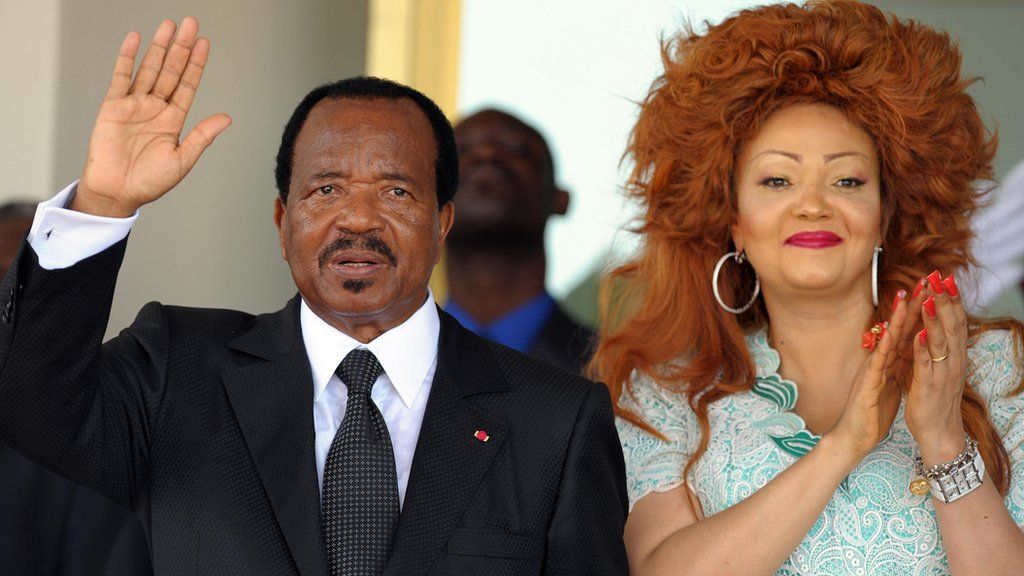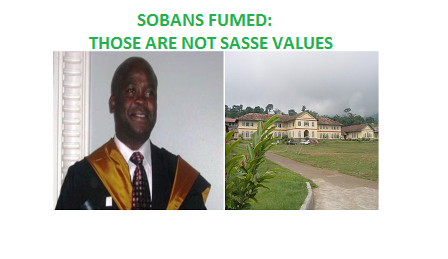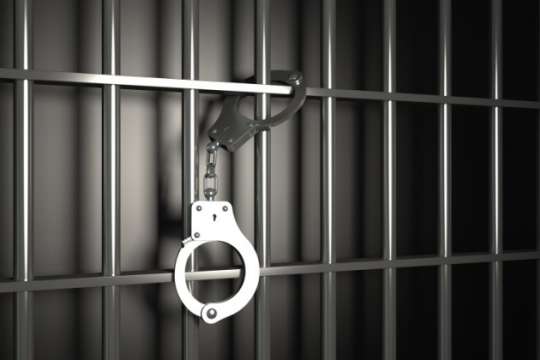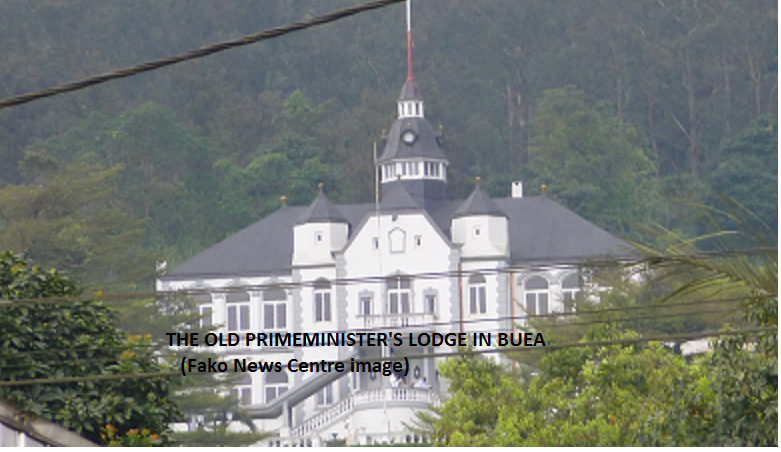The Anglophone minority is a delayed time bomb in Cameroon according to the US Central Intelligence Agency (CIA) Declassified document. The CLASSIFIED file titled CIA-RDP86T01017R000707040001-2 was approved for release on March 7, 2011.
The original classified document was published on February 3, 1986. It disclosed the Challenges ahead of Biya after taking over power.
The 30 years old document revealed that the Anglophones who constitute 20 % of the nearly 10 million population fear a gradual assimilation by the dominant Francophone community, according to to the US embassy reporting the challenge for Biya’s rule.
“We believe the Anglophone minority is a potential time bomb and should the central government fail to respect their cultural and linguistic traditions, the two million population may view armed confrontations as their only alternative”

The Cameroons is officially a bilingual country but without a perfect mastery of French, it is difficult for Anglophones to gain admission into the best schools and public service.
According to the US document, Anglophone students who constitute over one eight of the 15.000 students attending the university of Yaounde are a potentially volatile group and the Anglophone Students demands then included the creation of an English-language university.
The document also revealed that although Biya appears to command the military loyalty, senior officers may increasingly demand decision-making role if he fails to stem tribal descent and violence may erupt.
Furthermore, the document also details tribalism, threats of national unity, the pressure of political liberation, the economy, relationship with France, ties with the US and even religious splits.
This information made by the CIA several years ago could be true as presently Anglophone Cameroonians are demanding for their independence since October 2016. It should be recalled that the strike action started from a Lawyers strike to teachers and it has finally been engulfed by the entire people of Southern Cameroons.
Download the Declassified on the link
https://www.cia.gov/library/readingroom/docs/CIA-RDP86T01017R000707040001-2.pdf






4 comments
TAKING THE SOUTHERN CAMEROON’S STRUGGLE TO THE NEXT AND DECISIVE LEVEL
Songi Mbiong
INTRODUCTION
The objective of this paper is to argue that the people of Southern Cameroons will never have the political space they so much crave for in the Republic of Cameroon. Basing its argument on historical antecedents, the paper advocates for outright independence as a permanent solution to the intractable question of self-determination for the people of this territory.
BACKGROUND
Ahidjo’s move to abolish multiparty politics in 1966 was a mastermind to prevent any eventual opposition to the abolition of the federation between West and East Cameroon in the hoax of the anti-constitutional and nationwide referendum of 1972. Without attempting to re-narrate the process of the annihilation of genuine West Cameroonian politicians in the present-day Cameroon, it must be resounded that the union between the two polities started failing from inception. As Abouem Achoyi observes, the feelings of marginalisation were already felt and expressed by Anglophones as early as 1964. One would wonder why the first Vice Chancellor of the Federal University of Cameroon had to provide the following lame and subjective answer to a question on the plight of Anglophone students in the Federal University of Cameroon in 1964. “there is no Anglophone problem; all Anglophones learn French very quickly”. There is no better way of describing that posture than assimilation or francization par excellence.
Dissenting voices started in 1979, echoed from the USA and Canada by the Cameroon Action Movement (CAM). Their grievances (Abouem Achoyi, 2016):
– The francization of Cameroon, in defiance of the equality of the two colonial heritages;
– The transformation of the National Assembly into a single chamber of registration, contrary to what was happening in western Cameroon;
– Excessive centralization;
– The multiplicity and complexity of procedures;
– The abandonment of the development priorities which were those of West Cameroon before unification, with the consequent slowing of development in the Anglophone part of the country;
The change of the name of the country from United Republic of Cameroon, to The Republic of Cameroon in 1984 did not help matters. This was the culmination of assimilation and annexation as all traces of a union were obliterated in the Republican institutions.
In 1985, the replacement of the Cameroon National Union political party which still carried some semblance of a conglomerate of different political opinions by the Cameroon Peoples Democratic Movement (CPDM) put a final nail on the country’s political history, that of two distinct peoples now becoming one – the Cameroon people.
There is no doubt that five years down the line from 1985, the greatest challenge to one party rule in Cameroon came from the Anglophones. When Ni John Fru Ndi, an Anglophone and presidential candidate of the Social Democratic Front (SDF) party was denied victory at the rigged 1992 presidential elections, Anglophones were further convinced that they had no place in the Cameroonian experiment of a unitary state.
The tripartite constitutional conference of 1993 brought a glimmer of hope for the Anglophones but the subsequent rejection of their proposal for a return to the two-state federal constitution of 1961 was rejected outright prompting the convening of the first All Anglophone Conference (AACI) in Buea to reassert their support for a return to the 1961 federal form of government. This conference held from April 2 to 3 1993 resulting in the “Buea Declaration” calling on constitutional amendments to restore the 1961 federation. It was followed by the AACII in Bamenda in 1994 resulting in the “Bamenda Declaration”. The Bamenda Declaration stated that if the federal state was not restored within a reasonable time frame, Southern Cameroons would pull out of the union and declare its independence. The AAC was later renamed the Southern Cameroons Peoples Conference (SCPC). To achieve its objective, the Southern Cameroons National Council (SCNC) was elected and given the mandate to harness and organised the efforts of the SCPC towards autonomy. Its first chair was Barrister Ekontang Sam Elad. The Southern Cameroons Peoples Organisation (SCAPO) was also later created and on 28 May 1995, the youths formed the Southern Cameroons Youth League (SCYL). On June 1 1995, the SCNC Delegation to the UNO led by John Nguh Foncha was received and it presented a petition to the World body against the annexation of Southern Cameroons by the The Republic of Cameroon.
On 30 December 1999, armed members of the SCNC seized the CRTV Buea radio station and Ebong Frederick Alobwede proclaimed the independence of Southern Cameroons.
In 2002, SCAPO took the Nigerian Government to the Federal High Court in Abuja to require it to take a case before the International Court of Justice to establish the right of the people of the Southern Cameroons to self-determination. The Court ruled in their favour on March 5, 2002. However, Nigeria did not execute the Court’s ruling obviously for fear of further degrading relations with Cameroon which were already very tense because of the unresolved Bakassi dispute.
In 2005, Southern Cameroons was admitted into the Unrepresented Nations and Peoples’ Organisation (UNPO). In the same year, it became a Charter member of the Organisation of Emerging African States (OEAS).
In 2009, in a case pitting the late Dr Kevin Ngwang Gumne et al. of SCAPO against The Republic of Cameroon, The African Commission on Human and Peoples’ Rights recognised that Southern Cameroonians qualified to be referred to as a “people” because they manifest numerous characteristics and affinities which include a common history, linguistic tradition, territorial connection and political outlook, against refusal from the respondent state (The Republic of Cameroon). It declared inter alia that “More importantly, they (Southern Cameroonians) identify themselves as a people with a separate and distinct identity. Identity is an innate characteristic within a people. It is up to other external people to recognise such existence, but not to deny it. The respondent state (The Republic of Cameroon) may not recognise such innate characteristics. That shall not resolve the question of self-determination of Southern Cameroonians. It might actually postpone the solution to the problems in Southern Cameroons…” The ruling further advised the Republic of Cameroon as follows: “It is incumbent on State Parties whenever faced with allegations of the nature contained in the present communication to address them rather than ignore them under the guise of sovereignty and territorial integrity”.
While accepting the Southern Cameroons right to self-determination, the Commission stated that secession was not the only avenue open to the complainant to exercise it. It however suggested that autonomy within a sovereign state could be exercised in the context of a confederation or a federation. However, the Commission’s stance was that Southern Cameroons grievances could not be resolved through secession but rather through a comprehensive national dialogue.
For more than 30 years, Cameroonians in general and Southern Cameroonians in particular have requested for a national dialogue but failed dismally to get one. The recommendations of the African Commission on Human and People’s Rights have also been comprehensively mockingly violated.
WHAT ARE THESE RECOMMENDATIONS
The African Commission recommended as follows;
1. That the Respondent State:
(I) Abolishes all discriminatory practices against people of Northwest and Southwest Cameroon, including equal usage of the English language in business transactions;
(II) Stops the transfer of accused persons from the Anglophone provinces for trial in the Francophone provinces;
(III) Ensures that every person facing criminal charges be tried under the language he/she understands. In the alternative, the Respondent State must ensure that interpreters are employed in Courts to avoid jeopardising the rights of accused persons;
(IV) Locates national projects, equitably throughout the country, including Northwest and Southwest Cameroon, in accordance with economic viability as well as regional balance;
(V) Pays compensation to companies in Northwest and Southwest Cameroon, which suffered as a result of discriminatory treatment by banks;
(VI) Enters into constructive dialogue with the Complainants, and in particular, SCNC and SCAPO to resolve the constitutional issues, as well as grievances which could threaten national unity; and
(VII) Reforms the Higher Judicial Council, by ensuring that it is composed of personalities other than the President of the Republic, the Minister for Justice and other members of the Executive Branch.
2. To the Complainants, and SCNC and SCAPO in particular, (i) to transform into political parties, (ii) to abandon secessionism and engage in constructive dialogue with the Respondent State on the Constitutional issues and grievances.
3. The African Commission places its good offices at the disposal of the parties to mediate an amicable solution and to ensure the effective implementation of the above recommendations.
4. The African Commission requests the Parties to report on the implementation of the aforesaid recommendations within 180 days of the adoption of this decision by the AU Assembly.
Transforming the SCNC and SCAPO into political party is never going to be possible in Cameroon because their philosophies are diametrically opposed to the Cameroon government’s policies of assimilating and integrating Southern Cameroonians into the country against their will. As such, the organisations are illegal in the country. That is the same reason comprehensive dialogue recommended to resolve the Southern Cameroons problem will never also prosper if the political posture and options of the present regime don’t change. To the regime, accepting to participate in any dialogue over the issue is inimical to territorial integrity because the general believe among the francophone political class is that self-determination for Southern Cameroons is a pretext for independence.
From October 2016, a strike action started by lawyers and followed by teachers over grievances of the non-recognition of the distinct cultural identity of Southern Cameroonians in matters of legal practice and education, amidst the constant cries of marginalisation, francization and assimilation was met with police brutality and repression. It provoked the eruption of a latent feeling of frustration and deception in a country where Southern Cameroonians feel as second class citizens. To the lawyers and teachers, the marginalisation of Southern Cameroonians can only be redressed by a return to the 1961 federal constitution. That is why piecemeal negotiations to stop the strike have all failed.
Courts and schools have been closed in Southern Cameroons since October and November 2016 respectively.
Government response has been to deny the grievances of Southern Cameroonians tending to liken them to problems faced by all Cameroonians and not only the complaining anglophones. The leaders of the Southern Cameroons protest movement have been labelled extremists and terrorists and arrested and charged with offenses that attract the death penalty in line with a 2014 law to fight against acts of terrorism. Internet connectivity, judged by the Government of Cameroon to be helping Southern Cameroonians to organise resistance was suspended from the territory on 17 January 2017. Others strike leaders have gone underground, and the population of this part of Cameroon has hearkened to calls for civil disobedience as a means of forcing the government to the round table for comprehensive constitutional dialogue.
The reluctance of the government for dialogue has caused the general opinion in Southern Cameroons to change fast. People now think their problems of marginalisation will never be given a fair hearing in the Republic of Cameroon given govern repression.
Southern Cameroonians in the diaspora have become strongly sympathetic with what is happening in their territory and have staged massive demonstrations at the UNO headquarters in New York, diplomatic missions all over Europe and Canada and even in Asia and South Africa. As much as the world sympathises with the plight of Southern Cameroonians, they alone hold the key to their freedom. How will that be obtained?
WAY FORWARD
If Southern Cameroonians hope to achieve self-determination via the present civil disobedience and boycotts of schools and courts, they must devise a strategic route map for their objectives. The purpose of this route map must be to unify the resistance into a single mouth piece in order to create greater seriousness and impact, attract more diplomatic sympathy, and better articulate the grievances of the people.
Firstly, all the active groups in this struggle must now bury their differences and unite for common good. The new generation of Southern Cameroonians is already successfully challenging the much politically fanned North West / South West divide which has been used by the Government of Cameroon for many years to divide, rule and weaken Southern Cameroon’s lobbying power in the country. The SCNC, SCAPO, SCPC, SCYL, MoRISC, The Consortium, etc. must be reborn in an AACIII which will elect a committee to henceforth speak for the people. This must happen as soon as possible to keep the flames of resistance burning. Given the intolerance to political dissent in Cameroon, this conference must be held abroad.
The current Southern Cameroons liberation struggle must be informed by history that national sovereign considerations surpass ethnic, personality conflicts as argued by Dibussi (2017). These were the issues that prevented the Southern Cameroonian politicians to forcefully adopt a pro-independence stance at the United Nations before the plebiscite and in their reunification negotiations with President Amadou Ahidjo in 1961.
The Committee that shall result from AACIII should be given a clear mandate as will be decided when it holds. As at now, opinions point to full separation from the Republic of Cameroon or in a worst-case scenario, a loose confederation. However, it should be noted that no former French colony on the African continent operates a federal or confederal state. It will not be feasible for Cameroon to become the exception. The lessons of history must never be forgotten.
When this is done, this committee will become the unique voice for the struggle and shall initiate all press releases and correspondences, represent the people in all negotiations and dialogue with either the Republic of Cameroon, UNO, AU or any other setting where the voice of the people of Southern Cameroons will need to be heard.
The Committee will ensure that it has focal points in the USA, Canada, UK, France, Russia, Germany, China, Nigeria, South Africa, Belgium, the Scandinavia, Italy, Spain and every country where a critical population of Southern Cameroonians can be found.
With the existence of digital communication, such a meeting must not bring everybody together geographically.
WHO SHOULD CONVOKE AACIII?
Tassang Ivo, founding member of the Consortium and Mark Bareta and Ivo Tapang, interim leaders should convoke AACIII. To date, the Consortium of Southern Cameroons civil society organisations, pressure groups and trade unions has enjoyed the widest acceptance and support from the people. They should continue to lead.
PROPOSED STRATEGY FOR THE COMMITTEE
1. Sustain civil disobedience and boycotts
2. Draw a strategic route map to independence, a blueprint to anchor the independence of Southern Cameroons
3. Lobby world opinion leaders – Koffi Annan, Obama, Mbeki, etc.
4. Lobby the five permanent members of the Security Council and other countries
5. Lobby the UNO, AU, Amnesty International etc.
To sustain diplomatic sympathy, lobbying must become a central part of the struggle.
An incredible write-up.
Worthy of due consideration from all the faction leaders @Consortium @MoRisc @SCNC @SCAPO @SCPC @SCYL….
Thanks very much Songi M for this wonderful write up. I hope you also send a copy the persons you have just cited and looking forward to seeing AAIII. I think it is of utmost importance that all anglophone groups converge into one. That gives more credibility. That is in fact the secret of the success of the consortium which came up as the only legitimate voice of all other groups in West cameroon. We can do it for the wider West cameroon group the world over.
Nothing really surprises me anymore. Anyone who REALLY wants to know whats going on should definitely check this out, its a pretty scary warning from a history and religion professor. Pretty damn eye opening: https://ancientprophecy.weebly.com/